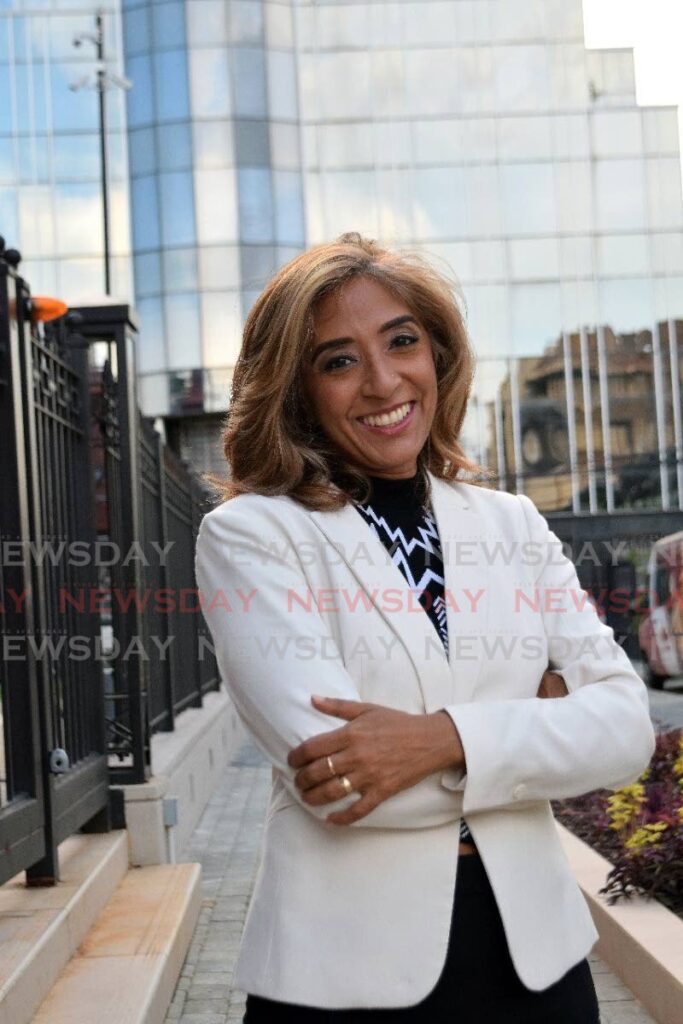Policing people's democracy

Dr Gabrielle Hosein
Protest has always been necessary in Caribbean people’s arsenal against state injustice and indifference.
Our right to protest must be fiercely guarded, particularly when we see signs of unlawful police authoritarianism.
We must know this is always supported by politicians in government, whether overtly or tacitly. Those in power worry when people take to the streets, and police are always the force they both wield and hide behind.
In the last years under Patrick Manning, a busload of officers, armed for all-out civil war, would offload at entirely peaceful civil gatherings, appearing more threatening than any citizen speaking on a microphone or handing out pamphlets.
This was aligned with a global move to arm police against civil society, and not just against criminals. I was a younger student then, but was reminded of the historical role of police to quiet the poor and protect social and gendered order no matter how unjust.
It is no different today.
On June 8, news coverage showed Shairah Ali, 61, standing at the side of the road, shouting during a protest over lack of water and the condition of roads. She was charged with disorderly behaviour in a public place and resisting arrest, after WPC Nalisha Mohammed-Aziz ordered Ali to lower her voice. We could all view the footage.
The message from the police is that frustration and anger at the lack of a basic human right such as water must be expressed quietly and politely.
If you protest outside Parliament, dutifully corralled on the opposite pavement as instructed by police, you are also told not to shout. You are threatened with removal and arrest. Even if you gather peacefully with permission of the CoP, you will be faced with a disproportionate battalion of (mostly men with) sub-machine guns as clear symbols of intimidation.
In early 2021, so discovered another generation of young women and students during popular outpourings about the injustice of violence against women.
Standing with their placards, making their nation proud by speaking out for what was right, they were as shocked, as every generation must be, on encountering the leaden hand of police. The lesson? You must protest in polite near-silence or fight up with excessively armed authorities coercing quiet like weaponised schoolmarms.
Surely the point is for those in the House to hear the sentiments of those outside, not to slip past them through a back door and then be cloistered in plush air conditioning to shout at each other on the inside?
Surely someone will wonder why these same politicians are allowed to shout from political platforms and threaten physical violence against opponents in every cardinal direction, while in Barrackpore, you could get charged for shouting like that?
For girls and women, this is doubly disempowering, for it continues to reinforce a world in which we should not be heard, should not be loud, should not become angry, should not use our voice to fight for everything we need and deserve.
When police silence women, they also enforce obedience to gendered expectations of femininity.
We can be encouraged by the fact that Indian and African women – whether sugar labourers, prostitutes, widows, grandmothers, unionists, pan-Africanists, jamettes, feminists, students, community leaders, domestics, or housewives – have disagreed.
Women in the Caribbean have been protesting loudly, and not always peacefully, throughout our history.
Ali, who was standing peacefully and non-threateningly, is now on $40,000 bail. This is a pattern in policing we must recognise.
Just in time, on Monday, Justice Ricky Rahim ruled that public meetings require notifying the commissioner of police, but do not require “permission.” For a public march, permission must be sought and granted. The word “protest” is not in the Summary Offences Act. No permission is thus required.
Justice Rahim also affirmed that “the right to express oneself” is a fundamental one.
He echoed caution about “arbitrary use and abuse of power” and “unlawful action by the police.” In his words, “Those who carry with them the power of the State must be vigilant themselves to ensure citizens do not feel taken advantage of especially where they feel they have a right to be heard.”
What does this mean for protests, which are a weapon of the weak, for those without historical, political, economic or institutional power?
They will continue to confront law with moral authority. We must speak out for those disturbing the peace out of desperation for water, better roads or schools.
Police cannot arrest a whole nation in solidarity.

Comments
"Policing people’s democracy"